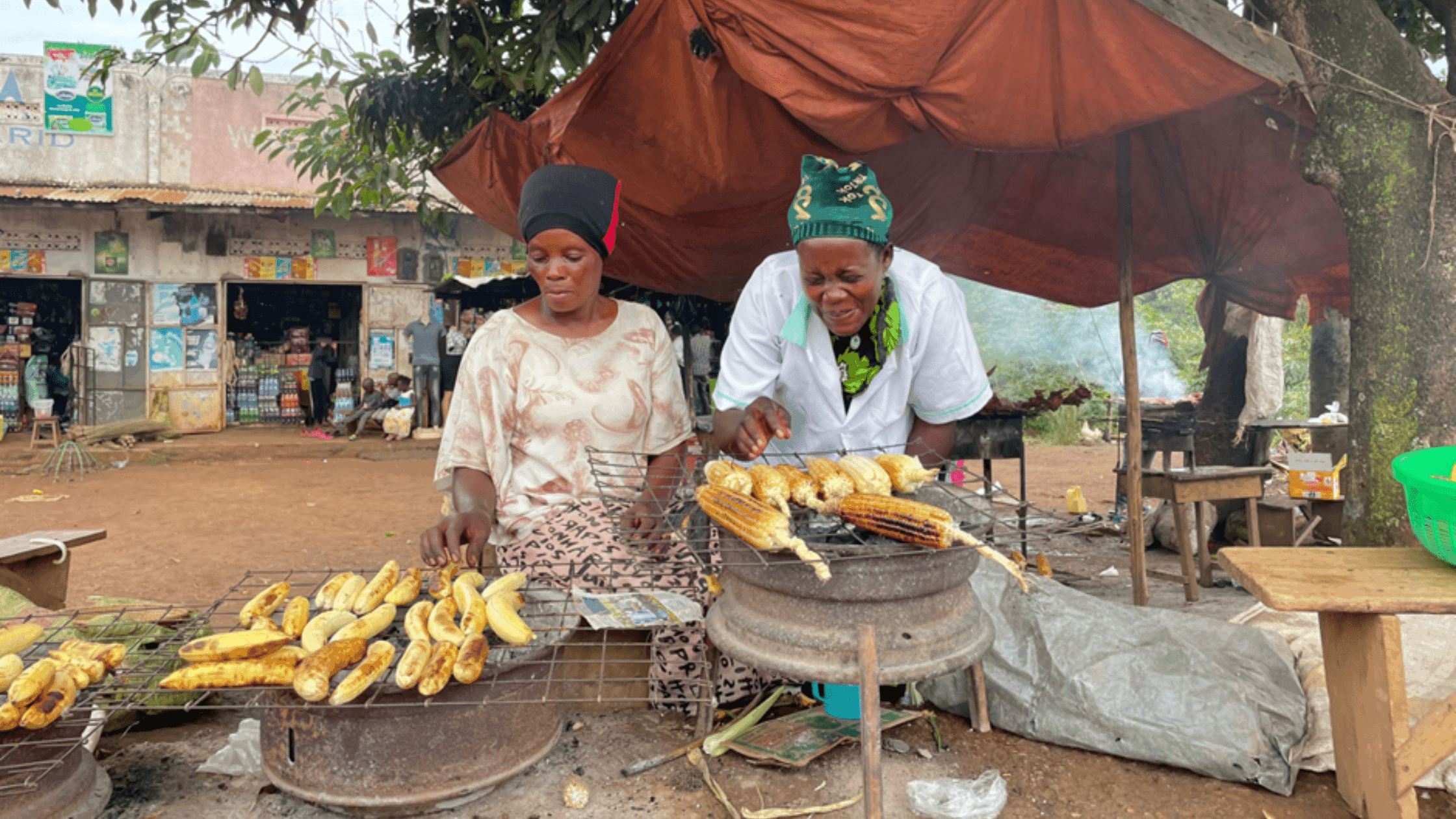In the rural districts of Mpigi and Butambala in Uganda, where youth unemployment is high and opportunities for women are limited, something exciting just wrapped up. Over the past two years, 600 women joined a 100WEEKS pilot programme to test a big question: can direct cash help young women not only escape poverty, but also create jobs?
Together with the Challenge Fund for Youth Employment (CFYE), Simbuka, AMFIU and other local implementation partners, the project was launched with two clear goals:
- To see how many jobs - direct and indirect - the 100WEEKS programma could create.
- To support the most successful women in getting access to microcredit to grow even further.
One more time: the 100WEEKS model
At the heart of this project lies the familiar 100WEEKS approach, direct, simple, and built on trust. As always, the programme is structured around three core elements:
- Weekly cash transfers of €8 via mobile money, for 100 weeks.
- Training and coaching in entrepreneurship, agriculture, and financial literacy
- Support through savings groups (VSLAs) to build saving habits and community resilience.
This trio, cash, coaching, and community, forms the foundation of every 100WEEKS programme, but this pilot took that foundation and took it a step further.
What was different this time? All 600 participants were young women aged 18 to 35, slightly younger than the usual range, and they were coached by their peers: other young people from the same communities. That youth-led, local energy brought fresh ownership and connection to the whole programme.
Over time, many women moved from growing just enough to feed one’s family (subsistence farming) to what they proudly called "business farming", a shift made possible by both capital and capability. They invested in livestock, crops, small shops, or market stalls to start new businesses, or expand current ones. The savings groups helped women build good money habits and support each other. In places without easy access to banks, they also became an important first step toward using formal financial services.
What the data shows us
First, let’s talk about the transformation we saw, not just in income, but in everyday life.
- At the start, only 36% of the women were considered “non-poor.” By the end? That number had more than doubled to 80%. This was measured using the multidimensional poverty index.
- 95% of women faced food insecurity in the beginning. After the programme? Just 14%.
- 88% said no one in their household goes to bed hungry anymore.
- Anxiety levels dropped too - big time. Women who reported ‘minimal’ anxiety (measured on the GAD-7 scale) went from 19% to 90%.
And it doesn’t stop there. Because savings groups are still going strong. Businesses are still growing. Many women are now hiring others, reinvesting, and thinking big about their futures.
Youth job creation: the numbers
The number one goal of this programme was to create jobs to combat the high levels of unemployment among youth in rural Uganda. Employment was defined as either the establishment of a new business, or the hiring of others for a business.
Let’s talk impact. Out of 600 young women in the programme:
- 426 women started or grew their own businesses - such as farming initiatives or market stalls. successfully started or expanded their own businesses.
- 702 people were hired by the women from the 100WEEKS program.
- About 40% of the women are still expected to hire someone within two years.
Altogether, the programme is set to create close to 1,200 jobs. That’s over a thousand new opportunities - led by women, for their own communities. Just one of 1,200 examples: on the picture at the start of this blog, you see Scovia (on the right) who bought land and started a maize and cassava business. For this, she hired someone from the community (on the left) to help her out on a daily basis.
And that’s just the official count. In reality, many women also create informal jobs, like hiring boda boda drivers to transport goods, or working with others to sell their products in local markets.
Because these roles often lack formal contracts, they don’t show up in traditional job metrics. That means the true employment impact of the programme is likely even greater than the numbers suggest.
Becoming bankable entrepreneurs: from microgiving to microcredit
The second big step we explored in this pilot was: what happens when women go from receiving cash support to becoming eligible for credit (small loans to invest in their growing businesses)?
As the women’s businesses took off, so did their ambitions. That’s where Simbuka and Association of Microfinance Institutions of Uganda (AMFIU) came in, offering tailored microcredit to the most promising entrepreneurs.
And it worked:
- At the start, just 24 women had a bank account. By the end? 185.
- Savings grew from €6 on average to €291.
- Monthly saving rates tripled.
This move towards microcredit didn’t replace the original model, but rather explored what is possible beyond: when trust, capital, and capability come together, and reveals a promising future for women as bankable entrepreneurs.
A local economy powered by young women
After two years, these women are no longer waiting for chances, but taking matters into their own hands to create opportunities. With support, training, and access to financial tools, they’ve become business owners, job creators, and role models.
Weekly savings groups will continue. Businesses will grow. And the peer networks formed through this programme will remain, because the transformation was never solely economic, but social and personal too.
This is the clearest evidence of the multiplier effect that we’ve had so far: cash transfers do not just support one woman. It sparks a chain reaction. Families eat better. Kids stay in school. Neighbours get hired. The ripple effects of the initial €8 extend far beyond their own households.
